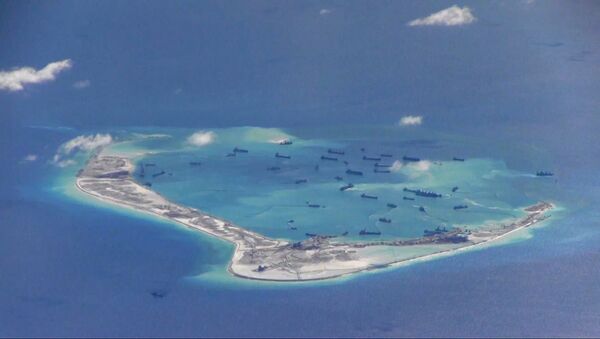This, if taken the wrong way by China’s president Xi, could potentially be a diplomatic gaffe. Sputnik spoke with Dr. Zhiguang Yin from the University to get his views on the situation.
Sputnik: Are British-Chinese relations currently good and Do you think that in sailing warships through the South China Sea; Britain is at risk of damaging its relationship with China?
Dr Zhiguang Yin: Personally I think we should define the action of sailing through the South China Sea. It’s a very large water and as you can see from the claim that the minister of defence made regarding the British ships, it doesn’t really clarify which part of the sea it will go through.
China only claims 12 nautical miles of territorial water, and 200 nautical miles of exclusive economic zones. It doesn’t really present such a big issue that could be detrimental to China-UK relations. I think we should view that particular issue from the perspective not necessarily as a military offence, but merely, the statement, as far as I can see, is a statement addressing domestic issues, and it’s quite intriguing that particular announcement came out right at the time when Theresa May visited China. It feels like it’s more or less a post Brexit conflict of power rather than addressing China related foreign policy.
Sputnik: Is Britain’s foreign policy towards China shaped by US influence?
Dr Zhiguang Yin: Again, this is an issue that needs to be put into context. Even if it was shaped by US foreign policy, it continues to be a British decision, which means that in a post Brexit scenario, the statement of saying we need to protect the freedom of navigation in the South China Sea, in line with a US claim made as early as the Carter administration. This is the British stating that the Commonwealth, as well as the US is more important, so in that sense it is shaped by the intention of getting closer to the US side and the Commonwealth to maintain the post Brexit UK influence, but on the other hand it is a sovereign decision.
Sputnik: Who is currently has more political influence within Asia as a whole; China or the USA?
Dr Zhiguang Yin: In terms of influence, it’s not necessarily about the will to interfere, it’s about the general perception of which country you should align yourself with. Henceforth it becomes a sovereign decision for all the countries in Asia.
At the moment it seems like the US has decided to take a relatively defensive position, and to retreat from its overseas interference, but at the moment China is definitely a very important trade partner as well as a strategic partner to consider. We can see at the moment more and more Asian countries deciding to stand together and aligning their national interests more closely with China, with the consideration that China is more influential, not necessarily that China intends to extend its influence, but I guess it’s merely just a reality.
The views expressed in this article by Dr Zhiguang Yin are solely those of the speaker and do not necessarily reflect the position of Sputnik.



